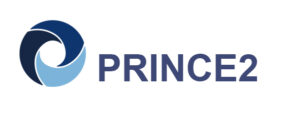
“The key to successful leadership today is influence not authority.” – Kenneth Blanchard

Online
Downloads
- Learning outcomes ICB4 NL (Dutch)
- IPMA ICB4 List of definitions in alphabetical order (Dutch)
- IPMA ICB4 List of definitions per competence area (Dutch)
- Calculation rules ICB4 exams IPMA B, C, D and PMO theory (Dutch)
- Test matrix IPMA PMO, D, C and B (ICB4) (Dutch)
- Changes in Learning outcomes (1-1-2017)
- Exam guide preview chapter 1 and 2 (Dutch)
- Experience Document Project Management IPMA C (Dutch)
- IPMA-C-theory – Sample exam – Open questions (ICB4) (Dutch)
- IPMA-C-theory – Sample exam 2 – Open questions (ICB4) (Dutch)
- Management summary Project management IPMA C (Dutch)
- Explanation and completion instructions for certification documents IPMA C (Dutch)
- Self-assessment Project management IPMA C (Dutch)
IPMA C
The IPMA C is certificate is suitable for project managers with a reasonable amount of experience and extensive knowledge of project management and thus be able to support complex projects. The exam consists of a self-assessment and an exam.
During the IPMA-C trajectory you will acquire in-depth theoretical knowledge in all areas of project management. You will also learn to critically assess your own performance within projects.
The IPMA C certification guarantees an internationally demonstrable quality and experience level, with which you can distinguish yourself in the market and continue to grow in your professional career.
ICB 4
IPMA Certification works on the basis of the ICB4. The Individual Competence Baseline, version 4, is a list of competences of project managers, but also program managers and portfolio managers.
28 competences have been established for project managers and 29 competences for program and portfolio managers. There are four certification levels, A through D, with A being the highest level. In addition, you can also obtain an Agile Leadership and a PMO certificate.
All certificates are valid for 5 years. After those five years you have to get recertified, but then through a shortened examination procedure.
Certification
The course trains you for the eponymous certification. You can register for the IPMA C exam (to be requested separately) at www.ipmacertificeren.nl. IPMA Certificering.
The external certification consists of a theory exam and an assessment. The theory exam consists of short cases and open questions. After passing the exam you will receive a partial certificate. Then you can complete your certification with the assessment. The IPMA C assessment consists of several phases. Submitting the Experience Document, Management Summary and Self-Assessment, IPMA collects feedback on performance and concludes with an interview with two assessors. For further information about admission requirements, registration and exam fees, visit the IPMA Certificering website: www.ipmacertifer.nl/nl/certificeringsnlevels/ipma-c/
The IPMA C training is given in 5 days and covers:
- Elements of project and program management
- Setting up and managing projects
- Risk management
- Working in teams
- Leadership, team dynamics and communication
- Planning and planning techniques
- Basic financial concepts
- Project analysis (Earned Value Analysis)
- Budgeting and financing
- Progress monitoring and reporting
- Leadership and team management
- Dealing with conflict
- Practical situations and examples
The training has a varied mix of theory (knowledge transfer), reflection, case studies and practical group assignments. During homework, the theory is further studied and the mock exam is practiced.
Study load
In addition to the contact hours, you must take into account 30 to 40 hours of homework / self-study.
In addition, you prepare for the exam by practicing on an IPMA e-learning site. This is available for 3 months from the first moment of logging in.
Objective
At the end of the training you are well prepared for the IPMA-C exam. The exam is not included in the course price.
You can request information about the exam or exam via www.ipmacertificeren.nl
Prerequisites
No specific prior education is required. Experience is a requirement for certification. Look for this on www.ipmacertifer.nl
Exam
The IPMA C theory certificate is the first part of the IPMA level C process. After passing the exam, you will receive the partial certificate IPMA C theory and you can start with the IPMA C-assessment .
The exam lasts 3 hours and consists of short cases and open questions. To optimally prepare for the exam, you can download practice assignments (.pdf):
You take the exam via the portal with one of our computers. Curious how it works? After registration there is a exercise environment you ready.
During the exam you will receive calculation rules (.pdf) so that you do not have to memorize all the formulas . For the digital exams, these are listed with the relevant question. The End terms ICB4 (.pdf) states which material one needs to know for the exam.
Would you prefer a handy booklet in which the competences, learning outcomes, learning objectives and subject matter are clearly linked and explained? Then order the Exam Guide ICB4 . You can also order the guide when you register.
You will receive the result (and if you pass the certificate) by e-mail after a maximum of 4 weeks. The theory certificate is valid for 18 months. Pass your C-assessment within this period to receive the full certificate. The theory certificate is not part of the register of IPMA-International. You will be included after passing the C-assessment
At Nwdijk you can follow the IPMA training courses in 2 different ways:
✓ Pragmatic approach
✓ Expert teachers
✓ Small groups
✓ One-to-one lessons
✓ Accredited
✓ In-company
✓ Official certificate
✓ Online training

Online
Classroom
Passionate and experienced teachers will take you through the material interactively. We always work with small groups so that everyone becomes part of the learning process. The teachers have extensive experience and will use many practical examples to convey the material in an enlightening manner and prepare you for the IPMA C theory exam.
Virtual
Our virtual training courses combine the personalized learning experience of a classroom with the convenience and flexibility of a virtual environment, so participants don't have to be in the same location. The lesson blocks are divided into half-days in consultation and are taught using MS Teams or Zoom.
